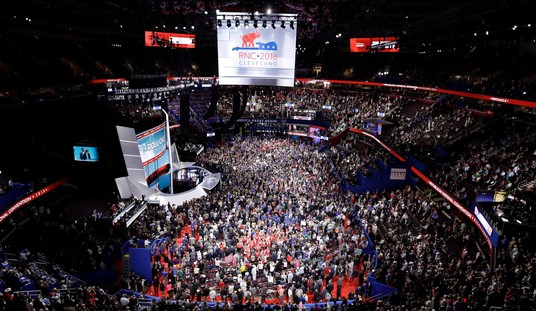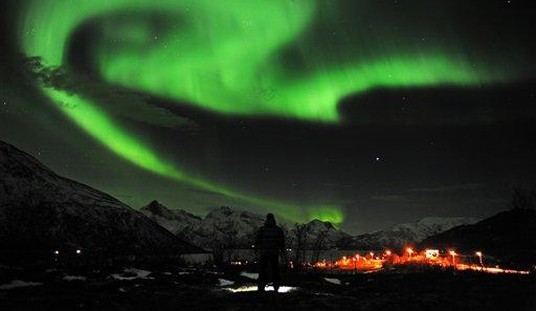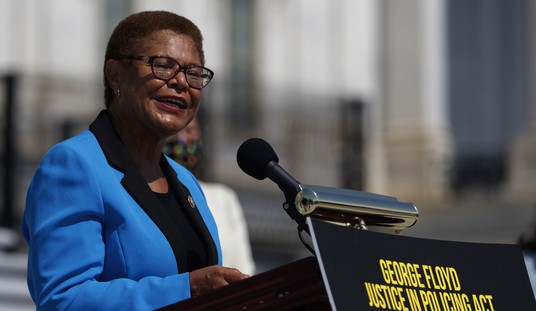The British Website Spiked gets a lot of things right, and is often a fun Website, but they really missed the mark here, describing Dalton Trumbo’s infamous 1939 novel Johnny Got His Gun as “A triumph of anti-war literature”:
Any Metallica fan worth his or her salt will have heard of, if not read, Johnny Got His Gun. This pacifist novel by Dalton Trumbo was the inspiration behind their 1988 single ‘One’, a legendary song that shows the band at their best (aside from the rancid lack of bass in the mixing, but that’s a different story).
Published in 1938, Johnny Got His Gun is an under-appreciated gem of experimental American literature. Told in a narrative mixture of first, second, and third-person, Trumbo’s First World War-set novel is a dream and a nightmare. The protagonist, Joe, regains consciousness in a military hospital only to discover that he has lost his arms, legs, eyes, mouth, nose and hearing. The novel is a gripping but depressing journey, through which Joe remembers his rosy – and pointedly physical – life in America, and his attempts to communicate with the outside world and to come to terms with existing as a conscious piece of meat. In its own extreme way, it highlights the sensory struggles that all those wounded or disabled must endure. The huge efforts made for the tiniest of victories – such as telling the time of day by feeling sunlight on his skin – are situated in an unremittingly bleak context: Joe is imprisoned within his wounded body forever.
But Trumbo was no intellectual waif writing a pacifist novel. Published “the very month that Hitler marched into Poland,” Ann Coulter recently wrote, Johnny Got His Gun was “a pure propaganda piece designed to squelch American ardor for helping Hitler’s victims.” Trumbo’s novel was written during the Hitler-Stalin Non-Aggression Pact; as City Journal’s Stefan Kanfer notes in the middle of his review of two recent books on the blacklist:
At first glance, Johnny could pass for the tract of a conscientious objector, ruing the results of Woodrow Wilson’s call to “make the world safe for democracy.” But the book had a hidden agenda: Trumbo had fallen under the spell of Communism and now marched in lockstep with the Party line: Germany and Britain, preparing for all-out war, should duke it out themselves. Never mind the reports of Nazi atrocities; America must not get involved in this European squabble.
The Communist Daily Worker was delighted to serialize Johnny in its pages, and with good reason: the U.S.S.R. had recently signed a nonaggression pact with the Third Reich. But in June 1941, Hitler’s armies invaded Russia. Overnight, Johnny was excised from the Worker’s pages. Now, combat was not only moral but mandatory. When Trumbo’s publishers chose not to keep his novel in print, he went along with their decision. Trumbo sees no inconsistency in the writer’s position. “By 1941,” the book straight-facedly reports, “Hitler had become a menace to the whole world, and when the United States entered the war against Germany in December of that year Trumbo saw ‘no other way than to support it.’”
Also crafted during this same period was Charlie Chaplin’s The Great Dictator, which had a message quite similar to Trumbo’s Johnny, Ron Rosenbaum, the author of the 1998 book, Explaining Hitler wrote in 2006:
And speaking of trivializing, there is no more trivializing, over-rated, treatment of Hitler than Chaplin’s dimwitted, laboriously unfunny Great Dictator. Yes Chaplin made some funny movies, but when he tried his hands at politics Chaplin made a movie that did nothing but help Hitler because he made him seem like an unthreatening clown just at a time, 1940, when the world needed to take Hitler’s threat seriously.Yet Chaplin’s film makes it seem like Hitler was nothing but a harmless fool (like Chaplin, same mustache and all). And he made it at a time, during the Nazi-Soviet pact, when the world most needed to mobilize against Hitler’s threat. And yet Chaplin, to his eternal shame ended the film not with a call to oppose fascism, and its murderous hatred, but rather—because he was following the shameful Hitler-friendly Soviet line at the time—ended his film with a call for all workers in the world to lay down their arms—in other words to refuse to join the fight against fascism and Hitler.
Pete Seeger was also making similar noises in his folk music during this period, as PJM’s own Ron Radosh — who in his younger days took banjo lessons from Seeger! — wrote in the New York Sun in 2007:
[In] August 1939 Hitler and Stalin signed a pact and became allies. Overnight the communists took a 180-degree turn and became advocates of peace, arguing that Nazi Germany, which the USSR had opposed before 1939, was a benign power, and that the only threat to the world came from imperial Britain and FDR’s America, which was on the verge of fascism. Those who wanted to intervene against Hitler were servants of Republic Steel and the oil cartels.
In the “John Doe” album, Mr. Seeger accused FDR of being a warmongering fascist working for J.P. Morgan. He sang, “I hate war, and so does Eleanor, and we won’t be safe till everybody’s dead.” Another song, to the tune of “Cripple Creek” and the sound of Mr. Seeger’s galloping banjo, said, “Franklin D., Franklin D., You ain’t a-gonna send us across the sea,” and “Wendell Willkie and Franklin D., both agree on killing me.”
The film does not tell us what happened in 1941, when — two months after “John Doe” was released — Hitler broke his pact with Stalin and invaded the Soviet Union. As good communists, Mr. Seeger and his Almanac comrades withdrew the album from circulation, and asked those who had bought copies to return them.
For almost 70 years now, “Oceania has always been at war with Eastasia/Eurasia” has been a catchphrase to describe breathtaking intellectual 180-degree pivots. (QED: Democrats and Iraq.) Orwell’s inspiration for the constantly shifting fronts in the futuristic dystopia of 1984 was based on how his fellow socialists reacted after Hitler violated his non-aggression pact with Stalin.
Daniel Hannan wrote in the London Telegraph last year that “The greatest cultural victory of the Left has been to disregard the Nazi-Soviet Pact” and toss it down the Memory Hole, to borrow another Orwellianism:
To the modern reader, George Orwell’s depiction of how enmity alternates between Eurasia and Eastasia seems far-fetched; but when he published his great novel in 1948, such things were a recent memory. It suited Western Leftists, during and after the War, to argue that Hitler had been uniquely evil, certainly wickeder than Stalin. It was thus necessary to forget the enthusiasm with which the two tyrants had collaborated.
* * * * * * *
In his Sword of Honour trilogy, Evelyn Waugh, largely through gentle subtext, told the story of how Soviet sympathisers in the West used the alliance with the USSR to rehabilitate its doctrines. Hayek, writing in 1944, devoted the greater part of his Road to Serfdom to refuting the idea that Nazism and Communism were opposed ideologies, well aware of how fervently this idea was being promoted.
He was right; but he made little impact. If you want to see how successful the propagandists of the time were, look at the reaction you get today when – as I did recently – you recite a few unadorned facts that point to the socialist nature of fascism.
Trumbo himself would go from writing the pacifist Johnny to penning the screenplay of the very-much pro-war 30 Seconds Over Tokyo just a few years later. And as Orrin Judd wrote in his review of Johnny 15 year ago:
The story of Dalton Trumbo & this pacifist classic is as entertaining as anything he ever wrote. After the Stalin-Hitler Nonaggression pact was signed, doctrinaire communists like Trumbo were ordered to oppose US entry into the war; the Nazis were suddenly allies of the Communists. So Trumbo penned this seemingly impassioned anti-war diatribe. However, as soon as Hitler invaded the Soviet Union, Party members were commanded to advocate immediate American intervention, so with Trumbo’s connivance the book disappeared from print. Meanwhile, isolationists praised the book and tried getting Trumbo to join their movement. He not only refused them, he also turned their names over to the FBI. Once the war ended, the FBI & Congress belatedly turned their attention to the domestic Communist menace and Trumbo ended up being a member of the Hollywood Ten, when he refused to name fellow Party members in a fit of new found moral virginity. Additionally, with America once again fighting against Communists, this time in Southeast Asia, Trumbo suddenly rediscovered the value of his novel and it returned to print. One hardly expects elevated levels of morality from a Communist, but the cynicism displayed by Trumbo was truly breathtaking.
In 2003, Mark Steyn wrote a review under the brilliant title “76 Trumbos Play the Big Parade,” of the off Broadway play written as an apologia for Trumbo, “Though the play won’t tell you the answer to that famous question – ‘Are you now or have you ever…?’ – the answer is: yes, he was. The more interesting question is: How do you feel about getting one of the great moral questions of the century wrong?”
Last month, Ann Coulter noted that Breaking Bad star Bryan Cranston will be playing Trumbo in a film to be released later this year. I wonder if he realizes the man he’s eulogizing is on par, in his own way, with Walter White. Or as Coulter’s headline exclaimed, “From meth cook to Hitler apologist.”
(Headline via this long-running Insta-meme.)









Join the conversation as a VIP Member